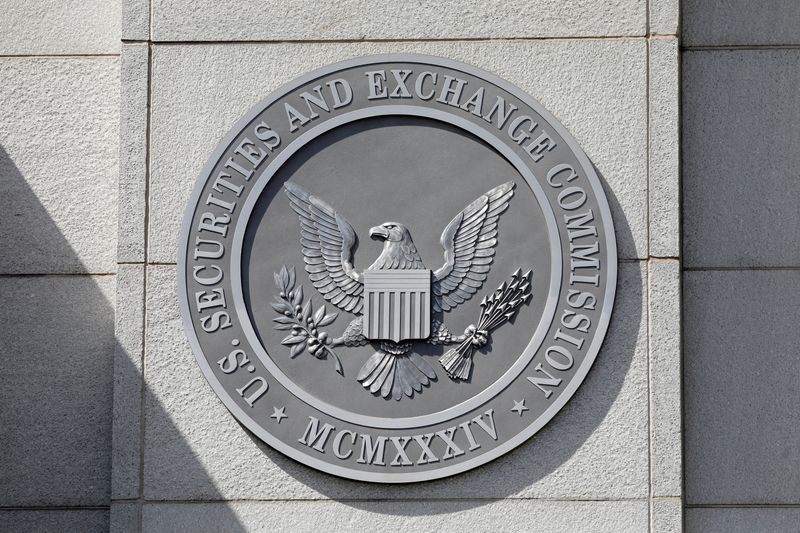By Chris Prentice
(Reuters) -U.S. authorities charged prominent activist short seller Andrew Left and his fund Citron Capital, alleging he had for years manipulated the market and defrauded investors with misleading claims about his positions in multiple stocks, including Nvidia (NASDAQ:NVDA) and Tesla (NASDAQ:TSLA).
The Justice Department and Securities and Exchange Commission said on Friday that Left used his social media platform and cable news appearances to promote what he said were his long or short trades, only to quickly reverse his positions, making as much as $20 million in the process.
Left, 54, also concealed that third-parties, including hedge funds, fed his commentary and that in return for compensation he alerted them before publicizing his positions, allowing them to profit or mitigate losses, the Justice Department alleged.
"To maintain the false pretense that Citron’s recommendations and positions were sincerely held, defendant Left made false and misleading representations and half-truths about his economic incentives, conviction in Citron’s analyses, and valuations of Targeted Securities," the DOJ said.
Left's lawyer James Spertus said the investor plans to fight the charges. "There is no crime here," he said in an emailed statement.
"Mr. Left is a publisher who has taken extraordinary steps to comply with all laws, and neither the DOJ nor the SEC allege that he ever once published information he believed was not true when published."
Left is expected to be arraigned in the coming weeks in United States District Court in downtown Los Angeles.
Known for his sensational and colorful style, Left for more than a decade has been among the most prominent of a cohort of “short activists” who say they bet against public companies on the basis they were over-valued or engaging in outright fraud.
HIGH-PROFILE TARGETS
Among Left’s most high-profile targets were the now defunct China Evergrande, GameStop (NYSE:GME), Valeant Pharmaceuticals (NYSE:BHC) and Shopify (TSX:SHOP). Proponents of short activists say they play a crucial role in the market, but critics have accused them of “short and distort” tactics that have unfairly damaged public companies.
Friday's charges are the culmination of a years-long probe by criminal prosecutors in Washington and Los Angeles and SEC investigators, which began investigating short-sellers and hedge funds in 2019, Reuters and other media have reported. Bloomberg first reported the DOJ probe in Dec. 2021.
The SEC and Justice Department focused on how Left publicly represented his position in high-profile stocks versus how he was really trading them, alleging that Left exploited his influence to manipulate the shares and reap quick profits.
Around Oct. 22, 2018, for example, the Justice Department alleged that Left took a long position in electric carmaker Tesla and the next day posted on X, then Twitter, that the firm was "LONG Tesla for this quarter." Minutes later, Left placed an order to sell more than half of his position for a profit of at least $1 million, the Justice Department alleged.
The next month, Left similarly promoted his long trade in Nvidia - which was trading around $144 - saying he expected the price to hit $165, only to sell his entire position less than two hours later, the Justice Department alleged.
An Nvidia spokesperson declined to comment, while Tesla did not immediately respond to a request for comment.
Left said publicly in 2019 that Citron had never been paid by a third party to publish research on stocks, but the Justice Department alleges that Left in 2018 and 2019 received more than $1 million each from two separate hedge funds who held short positions in stocks targeted by Left.
The novel charges may be challenging to prove in court, legal experts said.
"Some of the conduct described in the indictment is pretty normal in the short-seller community," said Robert Frenchman of New York law firm Dynamis. "You can still run afoul of securities laws when you lie about your position, your ties to hedge funds and the source of your search."

If convicted, Left would face a statutory maximum sentence of 25 years in federal prison for the securities fraud scheme count, up to 20 years in federal prison for each count of securities fraud, and up to five years in federal prison for the false statements count, the DOJ said.
The SEC is seeking disgorgement, prejudgment interest, civil monetary penalties and an officer-and-director bar, it said.